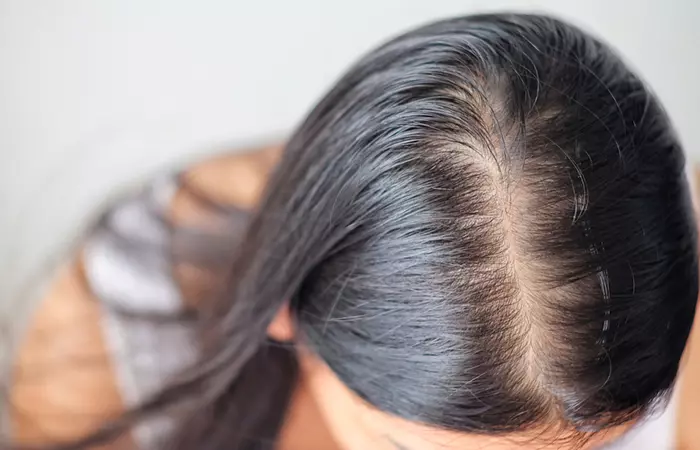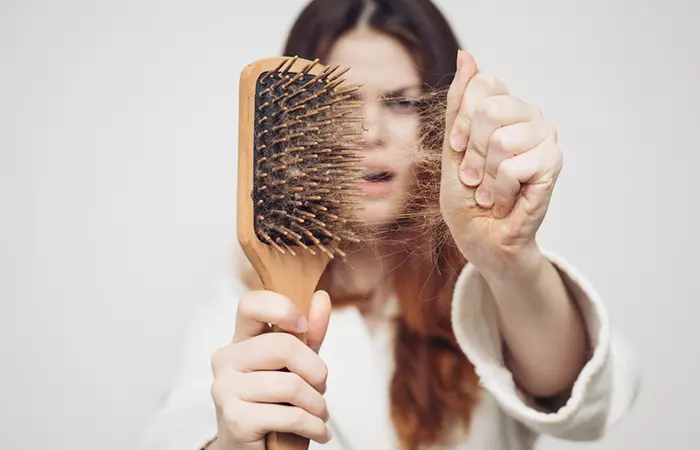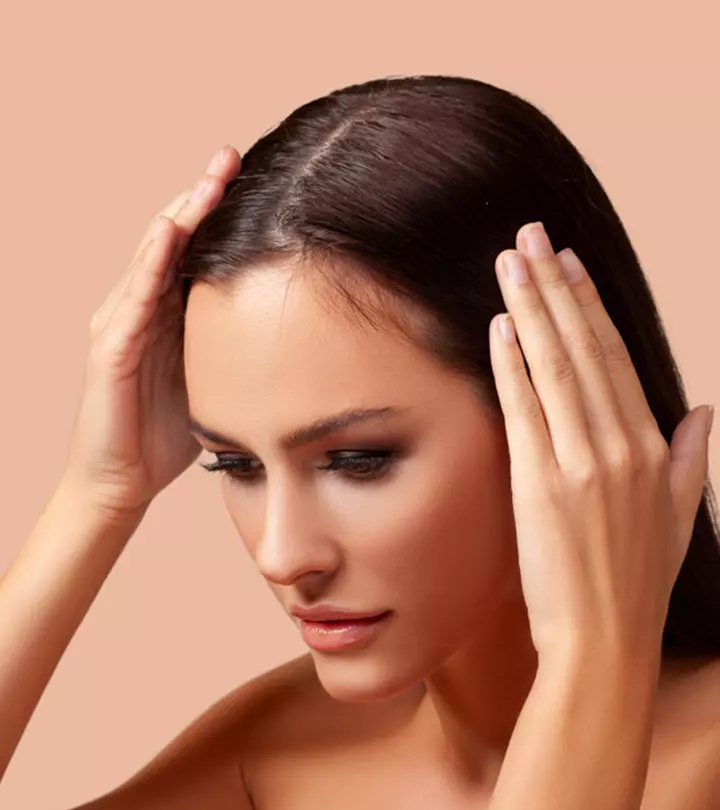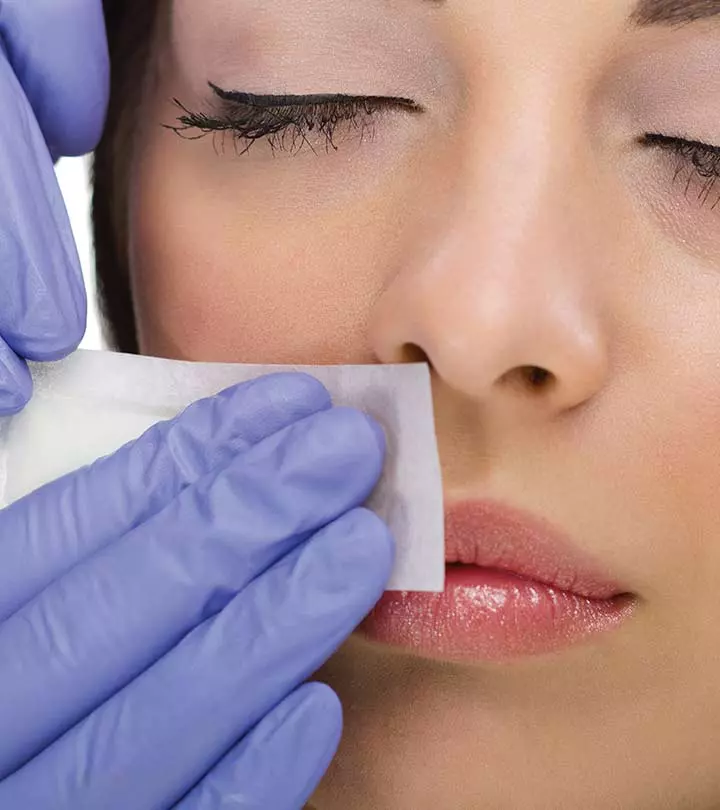9 Ways To Know If Your Hair Loss Is Normal Or Something You Should Worry About?
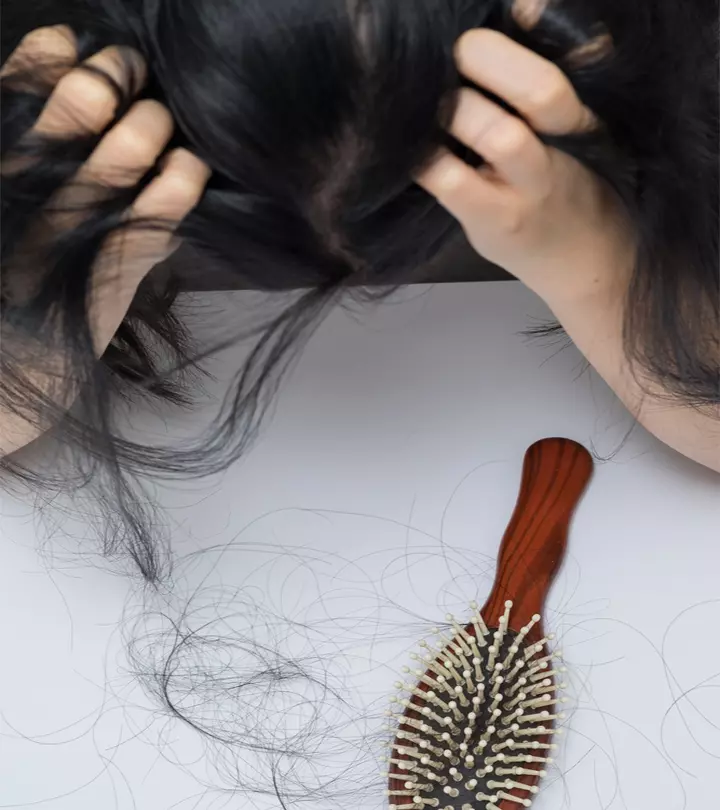
Image: Shutterstock
We grew up reading, Rapunzel let down her hair. But now, your hair is letting you down! Hair loss is a common concern for most people, but figuring out whether it’s just a normal part of life or something more serious can be confusing. From stress to genetics, various factors lead to hair loss. However, understanding when it’s normal and when it’s a cause for concern can help you take appropriate action. Here are some ways to differentiate between the two. Read on!
1. Consider Your Age And Gender
It’s essential to understand that hair loss can vary depending on your age and gender. For instance, it’s normal to experience some hair thinning as you age, especially after menopause for women and middle age for men (1). However, if you’re experiencing significant hair loss at a young age, it may need a thorough checkup from a health professional.
2. Assess Your Family History
Genetics plays a significant role in hair loss. If baldness runs in your family, it’s more likely that you’ll experience hair loss at some point in your life. However, this doesn’t mean you should ignore it. Keeping track of your family history can help you understand whether your hair loss is normal or if it requires attention.
3. Evaluate Your Stress Levels
Stress can have an impact on your hair health. While it’s normal to shed some hair during stressful periods, chronic stress can lead to more significant hair loss issues. If you’ve been under a lot of stress lately and notice increased hair shedding, it might be time to address your stress levels and find ways to manage them better.
4. Take Note Of Your Lifestyle Habits
Your lifestyle habits, such as diet, sleep, and exercise, can also affect your hair health. Poor nutrition, lack of sleep, and a sedentary lifestyle can contribute to hair loss. Making healthy changes to your lifestyle, such as eating a balanced diet, getting enough sleep, and staying active, can help improve your hair health.
5. Monitor Your Scalp Health
Pay attention to the condition of your scalp. Issues like dandruff, itching, or inflammation can be signs of an underlying scalp condition that may contribute to hair loss. Consulting a dermatologist can help you identify and treat any scalp issues you may be experiencing.
6. Notice Sudden Changes
Sudden and drastic changes in your hair loss patterns should raise a red flag. If you notice clumps of hair falling out or bald patches appearing suddenly, it’s essential to seek medical advice promptly. Sudden hair loss can be a sign of an underlying medical condition that requires attention.
7. Check For Other Symptoms
Hair loss can sometimes be a symptom of an underlying health issue. If you’re experiencing other symptoms such as fatigue, unexplained weight loss, or changes in your skin, it’s crucial to consult a healthcare professional. These symptoms could indicate a more significant health problem that needs to be addressed.
8. Assess Your Hair Care Routine
The products you use and how you care for your hair can impact its health. Harsh chemicals in hair products or excessive heat styling can damage your hair and contribute to hair loss. Opt for gentle, natural hair care products and avoid excessive heat styling to keep your hair healthy.
9. Seek Professional Advice
If you’re unsure whether your hair loss is normal or something to worry about, don’t hesitate to seek professional advice. A dermatologist can examine your scalp and provide personalized recommendations to address your hair loss concerns.
Fighting hair fall involves addressing various factors that contribute to hair loss. Here are some effective strategies to combat hair fall:
1. Nutritious Diet
Ensure your diet is rich in essential nutrients like vitamins and proteins. Incorporate foods like leafy greens, nuts, eggs, fish, and lean meats to promote healthy hair growth. In some cases, supplements containing vitamins, minerals, and herbal extracts may help support healthy hair growth. Consult with a healthcare provider before starting any new supplement regimen.
2. Scalp Care
Keep your scalp clean and well-nourished. Use a gentle shampoo and conditioner suitable for your hair type and scalp condition. Regular scalp massages can stimulate blood flow and promote hair growth. Limit the use of heat styling tools, chemical treatments, and harsh hair products that can damage your hair and exacerbate hair fall. Opt for natural and gentle alternatives whenever possible.
3. Regular Exercise
Engage in regular physical activity to improve blood circulation, reduce stress, and promote overall health, which can indirectly benefit hair growth. Ensure you get enough quality sleep each night, as sleep deprivation can disrupt hormonal balance and contribute to hair fall. Aim for 7-8 hours of uninterrupted sleep per night.
While hair loss can be a distressing experience, it’s essential to differentiate between normal shedding and more serious issues. By considering the factors discussed above you can better understand the cause of your hair loss and take appropriate action. Remember, addressing hair loss early can lead to better outcomes and healthier hair in the long run.



